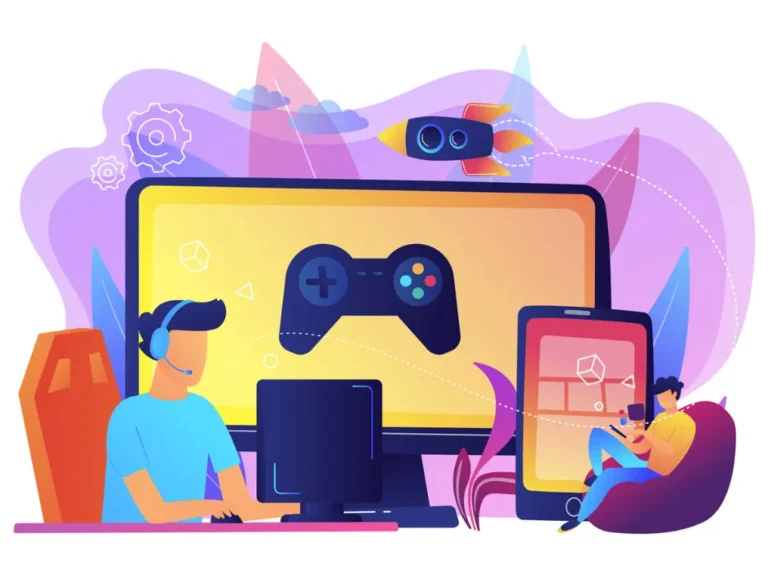Online slot has transformed from a niche hobby into a major global industry, shaping entertainment, culture, and social interactions. This article explores the development, influence, and future of online gaming, highlighting its significance and ongoing evolution.
Origins of Online Gaming
The journey of online gaming began in the early 1970s with pioneering experiments in networked play. “Spacewar!” was among the first games that hinted at the possibilities of multiplayer gaming. This era laid the foundation for future developments, though it would take decades for online gaming to become mainstream.
The Multiplayer Game Era
The 1980s and 1990s witnessed significant strides in online gaming with the advent of multiplayer games. Titles such as “MUD” (Multi-User Dungeon) and “Quake” introduced players to the concept of competing or collaborating over a network. These early games paved the way for more sophisticated online interactions and multiplayer experiences.
The Rise of Massively Multiplayer Online Games (MMOs)
The late 1990s and early 2000s were marked by the emergence of MMOs, which offered expansive virtual worlds and large player bases. Games like “EverQuest” and “World of Warcraft” became cultural phenomena, introducing complex gameplay mechanics and intricate social dynamics. MMOs set new standards for player engagement and community building.
Mobile Gaming Boom
The advent of smartphones and tablets in the late 2000s revolutionized online gaming. The introduction of mobile games such as “Angry Birds” and “Pokemon Go” reached a broader audience and popularized casual gaming. Mobile platforms enabled players to enjoy games on the go, significantly expanding the reach and diversity of online gaming.
The Emergence of eSports
The 2010s saw the rise of eSports, where competitive gaming became a professional pursuit. Games like “League of Legends” and “Dota 2” became central to the eSports scene, with tournaments drawing large audiences and offering substantial prize pools. eSports has elevated gaming to a global spectacle, attracting sponsorships and media attention.
Streaming and Content Creation
Streaming platforms such as Twitch and YouTube Gaming have become integral to the online gaming experience. These platforms allow gamers to broadcast their gameplay, interact with viewers, and build communities. Content creators have become influential figures, shaping gaming trends and engaging with audiences on a personal level.
Virtual Reality (VR) Innovations
Virtual reality has introduced a new dimension to online mahjong ways 2, offering immersive experiences through 3D environments. Games like “Beat Saber” and “Half-Life: Alyx” showcase the potential of VR to create engaging and interactive gameplay. VR is pushing the boundaries of traditional gaming and providing new ways for players to experience virtual worlds.
The Future of Online Gaming
Looking forward, online gaming is set to continue evolving with advancements in technology. Emerging trends include cloud gaming, which allows players to stream games without needing high-end hardware, and the integration of artificial intelligence (AI) to enhance game design and player interactions. Augmented reality (AR) is also expected to play a role in shaping the future of gaming experiences.
Social and Cultural Impact
Online gaming has had a profound impact on social interactions and culture. It has created global communities where players can connect, collaborate, and compete. Gaming communities often form strong bonds, and multiplayer games can foster teamwork and cooperation. However, issues such as online harassment and gaming addiction highlight the need for responsible gaming practices.
Economic Influence
The online gaming industry generates significant revenue, driven by game sales, in-game purchases, and advertising. The success of online gaming has spurred growth in related sectors, including game development, streaming services, and eSports. The economic impact of online gaming underscores its importance as a major player in the entertainment industry.
Cultural Integration
Online gaming has become a prominent part of popular culture. Iconic game franchises such as “Mario,” “Pokémon,” and “Fortnite” have transcended gaming, influencing movies, TV shows, and merchandise. Gaming culture has also inspired music, art, and literature, reflecting its growing significance in global culture.
Challenges and Opportunities
Despite its success, online gaming faces challenges such as cybersecurity threats and player safety concerns. Addressing these issues is essential for maintaining a positive gaming environment. At the same time, there are numerous opportunities for innovation, particularly in areas like cross-platform play and accessibility.
Conclusion
Online gaming has evolved from its early beginnings into a dynamic and influential industry. Its impact on entertainment, culture, and social interactions is profound, and its future promises continued growth and innovation. As technology advances, online gaming will likely remain a key player in shaping the future of interactive entertainment.
